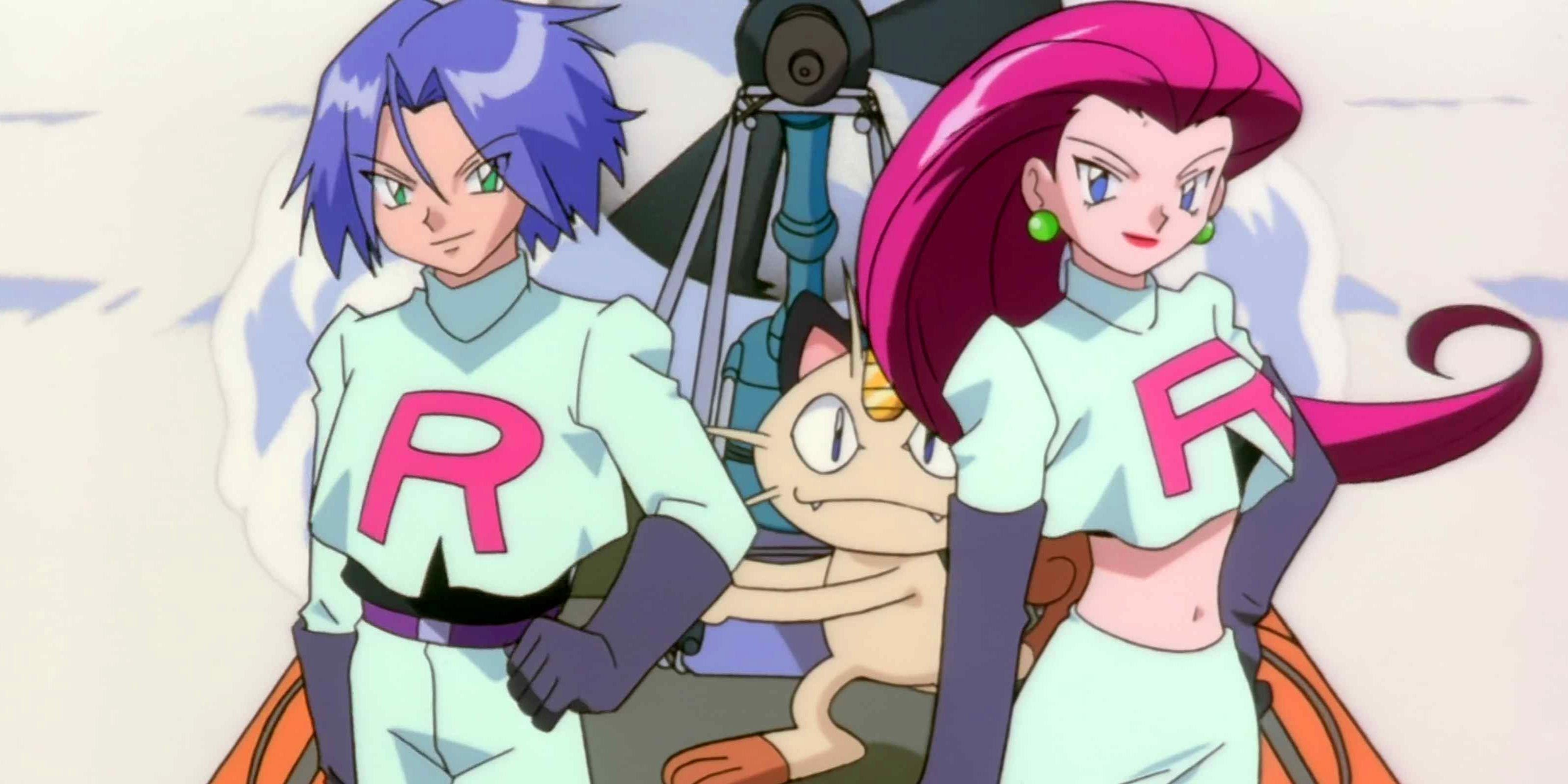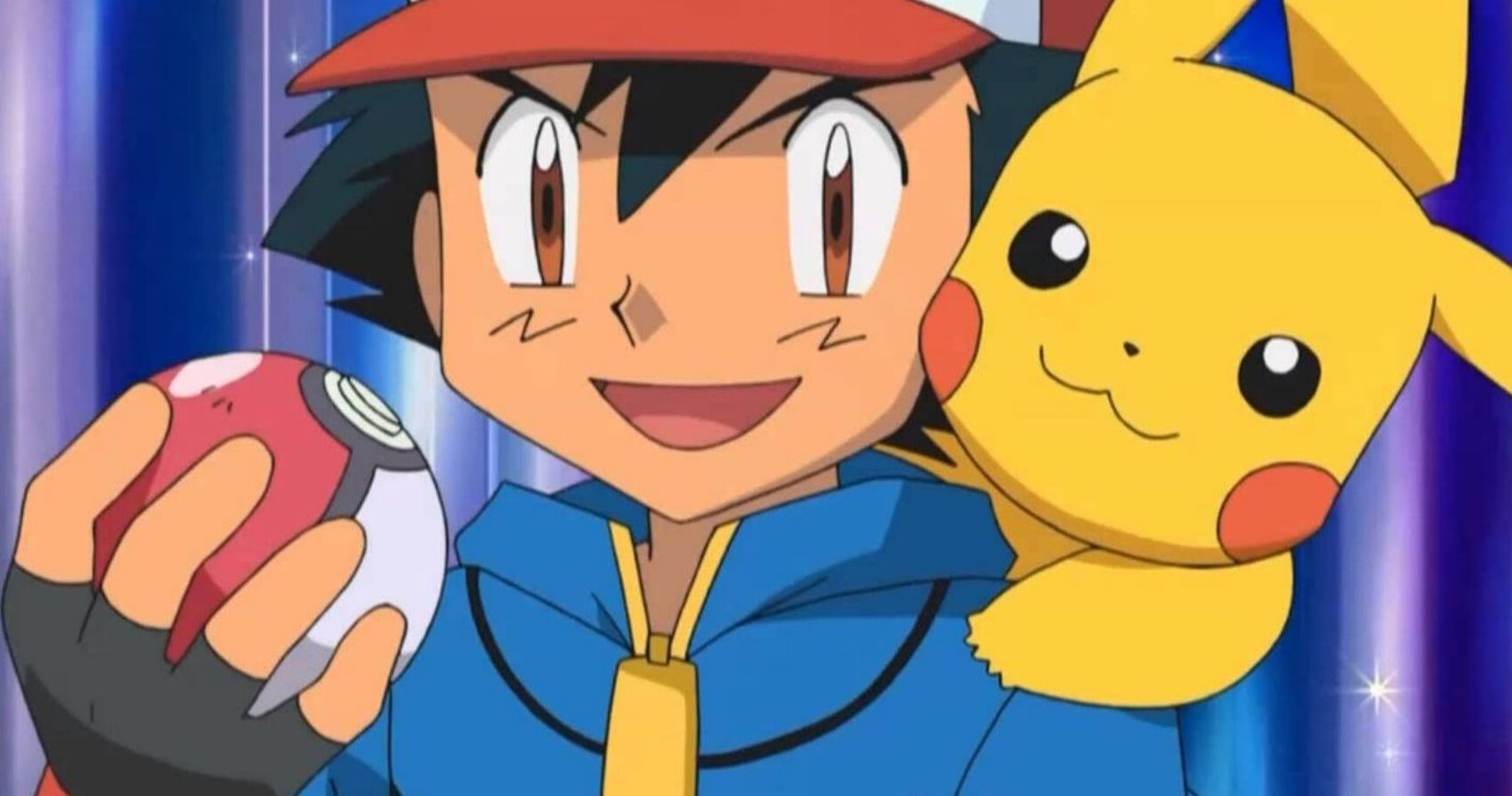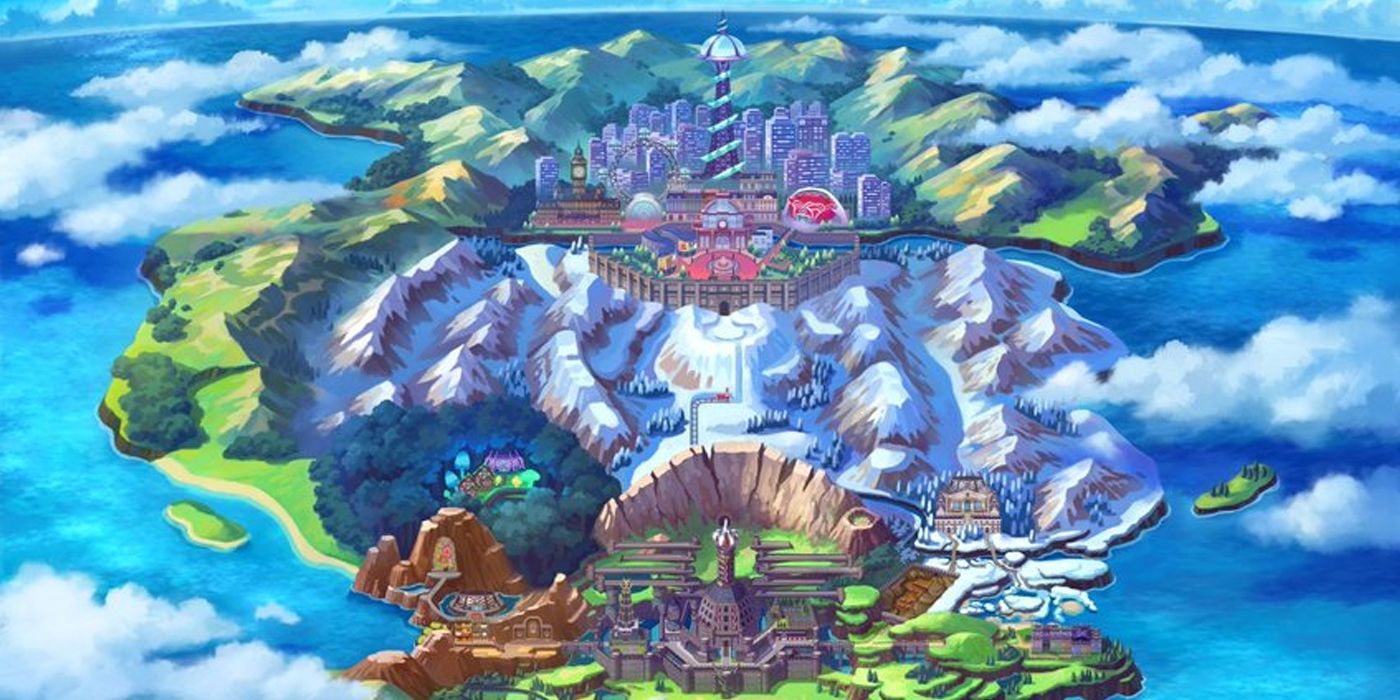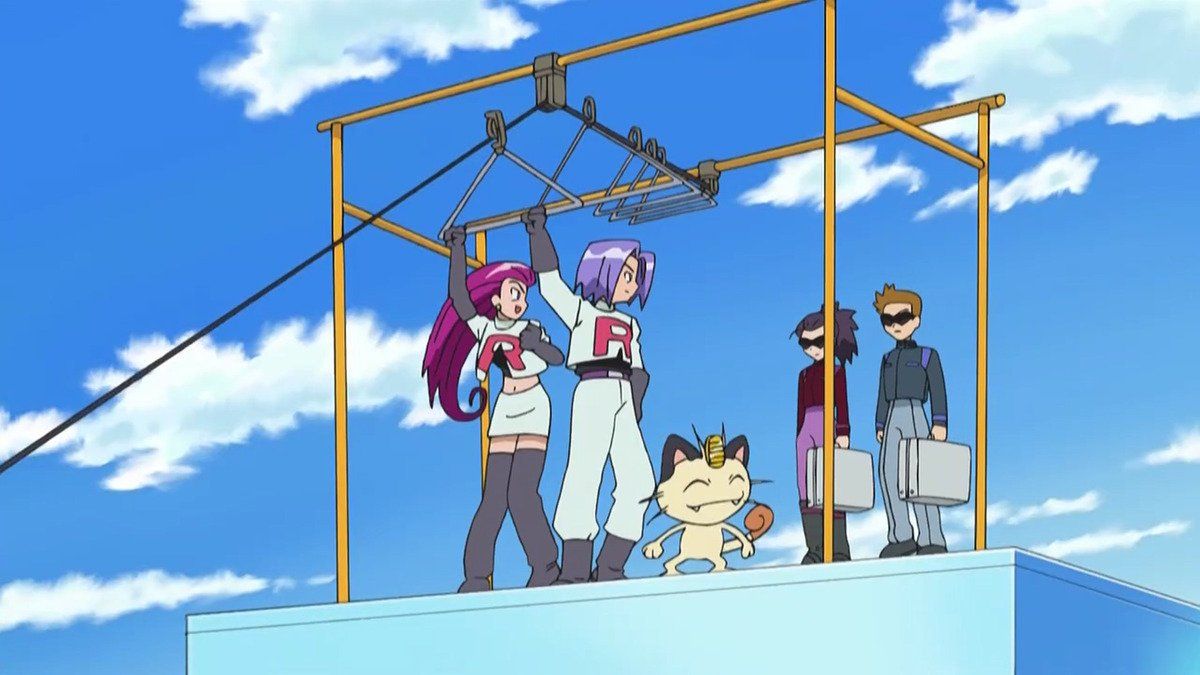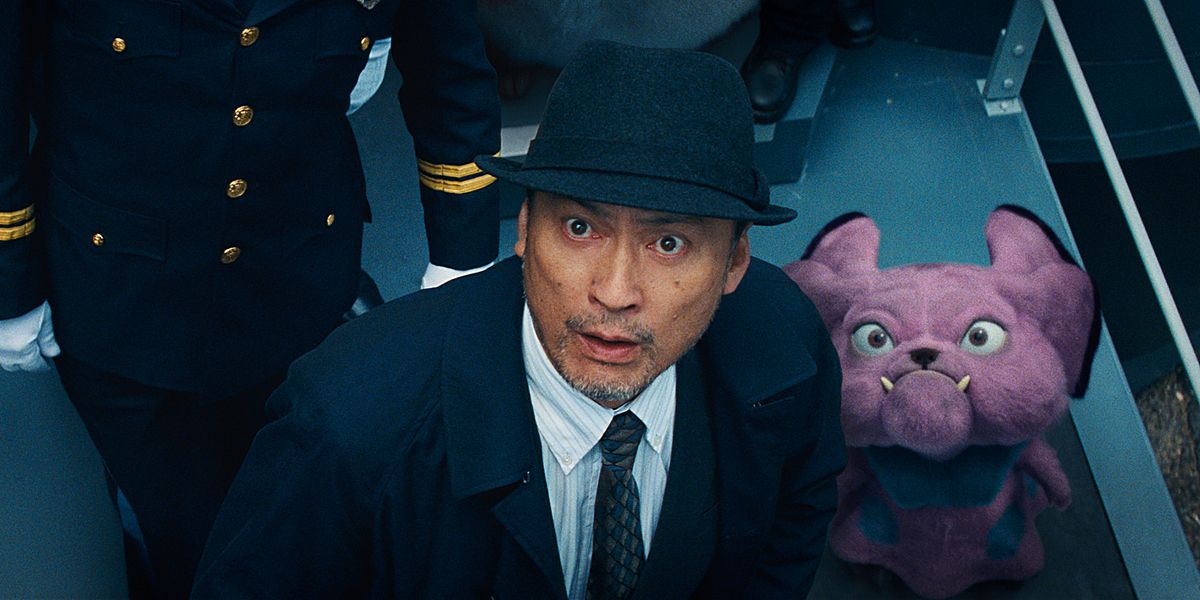Have you ever wondered why so many criminal gangs can operate in plain sight in the world of Pokémon? Despite Team Rocket's leader, Giovanni, running an illegal gambling ring in Celadon City and holding the Slyph Co. building hostage, he's still allowed to run a Pokémon Gym in Viridian City without Officer Jenny ever knocking on his door with an arrest warrant.
This troubled one fan theorist so much they came up with a solution to rationalize this bizarre trend. The theory, posted to Reddit, proposes a law exists that might allow Team Rocket, Team Magma, Team Aqua and every other "Team" around to continue their wicked, dastardly actions.
But does it hold any water? Let's find out.
ALL'S FAIR IN LOVE AND POKÉMON BATTLES
The theoretical law the theorist suggests might exist is vague enough in its phrasing to allow criminal gangs to perform their actions so long as what they do constitutes a Pokémon battle.
When a trainer enters a battle, they engage in a duel. Using United States duel laws as an example, the theorist argues that whatever transpires in the duel takes place outside the judicial system. Therefore, the police can't interfere with the duelists during the events of their duel, nor hold them responsible legally for what happens therein. With the US duel system, this means that, should one person be shot dead during the fight, the police can't arrest the living duelist. The two people agreed to the engagement, after all.
The theorist then takes this a step further, indicating that, due to the vagueness of this law, should a trainer, during a Pokémon battle, rob someone of their Pokémon or attempt to destroy the planet -- as criminal gangs in the Pokémon world are fond of doing -- they will face no legal consequences as a result of their actions.
POKÉ-PLANET
The theory is an interesting idea, but there are so many holes in it that it's hard to know where to even begin. Having said that, let's start with this: Pokémon's world isn't just one country. It's a whole planet.
Every region of Pokémon has its own cities and probably legal structures. They can be as far removed from one another as our real-world ones are. What applies in one region might not necessarily apply in another. The Pokémon might look different, the Pokémon League might change, even the system of reaching the League can be different, as demonstrated by Alola's unique Island Trials. So why, then, would every region possess the same, vaguely defined dueling law?
Furthermore, the theory uses American dueling laws as the core inspiration for this theoretical law. The only region based on America in the Pokémon world is Unova. We will get to Unova's evil team, Team Plasma, in a second. But we need to first address another hole in the theory.
CRIME DOES PAY
The crux of the theory is that Pokémon battles, and all that takes place within them, might be exempt from legal repercussions because the authorities struggle to define what is and what isn't a Pokémon battle. When Team Magma and Team Aqua pit two legendary Pokémon against each other and nearly destroy the planet, that's okay because it exists within the confines of a battle. When Team Rocket killed a Marowak mom, it's okay because it was in a battle. Right?
But Pokémon teams actually commit far more crimes outside of battles. A battle, by definition, is when two players fight with Pokémon. When you run out of Pokémon, you lose the battle, right? Furthermore, making eye contact with a trainer, in the games, will trigger a battle, indicating that a battle might not be a consensual affair like a gentleman's duel.
However, even taking all that into account, how does this "legalize" the gambling ring Team Rocket runs in Celadon, hoarding stolen Pokémon underground? Or, even worse, Team Rocket's various schemes in the anime, including bringing physical weapons like cannons and guns to hold people hostage? Clearly no Pokémon duels, even by the absolute loosest definition, were taking place in those instances.
Furthermore, when Team Rocket in Pokémon Gold and Silver hijacked the Goldenrod Radio Tower, they beat everyone in battle. Are we really to believe that their hijacking of the radio tower and broadcasting an illegal signal AFTER those fights can really count as a victory prize? Furthermore, them contaminating the water supply of the Lake of Rage, thus forcibly evolving the Red Gyarados, has nothing to do with anything resembling a Pokémon battle with another trainer.
The theory claims that evil Teams only commit acts of illegal activity while engaging in loosely-defined Pokémon "battles," but in reality, this isn't often the case.
THE SHORT ARM OF THE LAW
Ignoring Officer Jenny's constant presence in the anime (and sometimes games), ignoring the fact that Jessie and James are introduced with wanted posters, the police do pursue the evil leaders of the Pokémon Teams. But, as the theory addresses, they clearly aren't able to act effectively enough, impeded, apparently by the vagueness of the battling system. But there's something else the theory hasn't taken into consideration, and that's plot mechanics.
Police officers as a trainer class weren't introduced until the second generation. While police did appear in Kanto earlier, they did arrest members of Team Rocket, in particular, in Celadon City. However, once you actually are able to fight the police, as you do in Pokémon Gold and Silver, you realize why they're so poorly equipped to stop Team Rocket: a ten-year-old kid can beat them.
Let's return to Unova for a second. Team Plasma, near the end of the game, plays their final card, which involves a whole mess of throwing the cosmic alignment of the universe out of balance or whatever. The police do intervene, but, then again, so do the highest authorities Unova has: the Gym Leaders and Elite Four (who are the law of the land in the Pocket Monsters manga). The police are simply woefully ill-equipped to handle these sorts of crimes.
Then there's the existence of Looker to factor in, too -- a heroic, international police officer who investigates multiple evil teams throughout the Pokémon series, as well as the adjacent world of Detective Pikachu, a game/movie which is all about the police trying -- and often failing -- to intervene in illegal Pokémon affairs. Aside from all the other holes in the theory, incompetence seems to be more to blame than any legislative loopholes.

